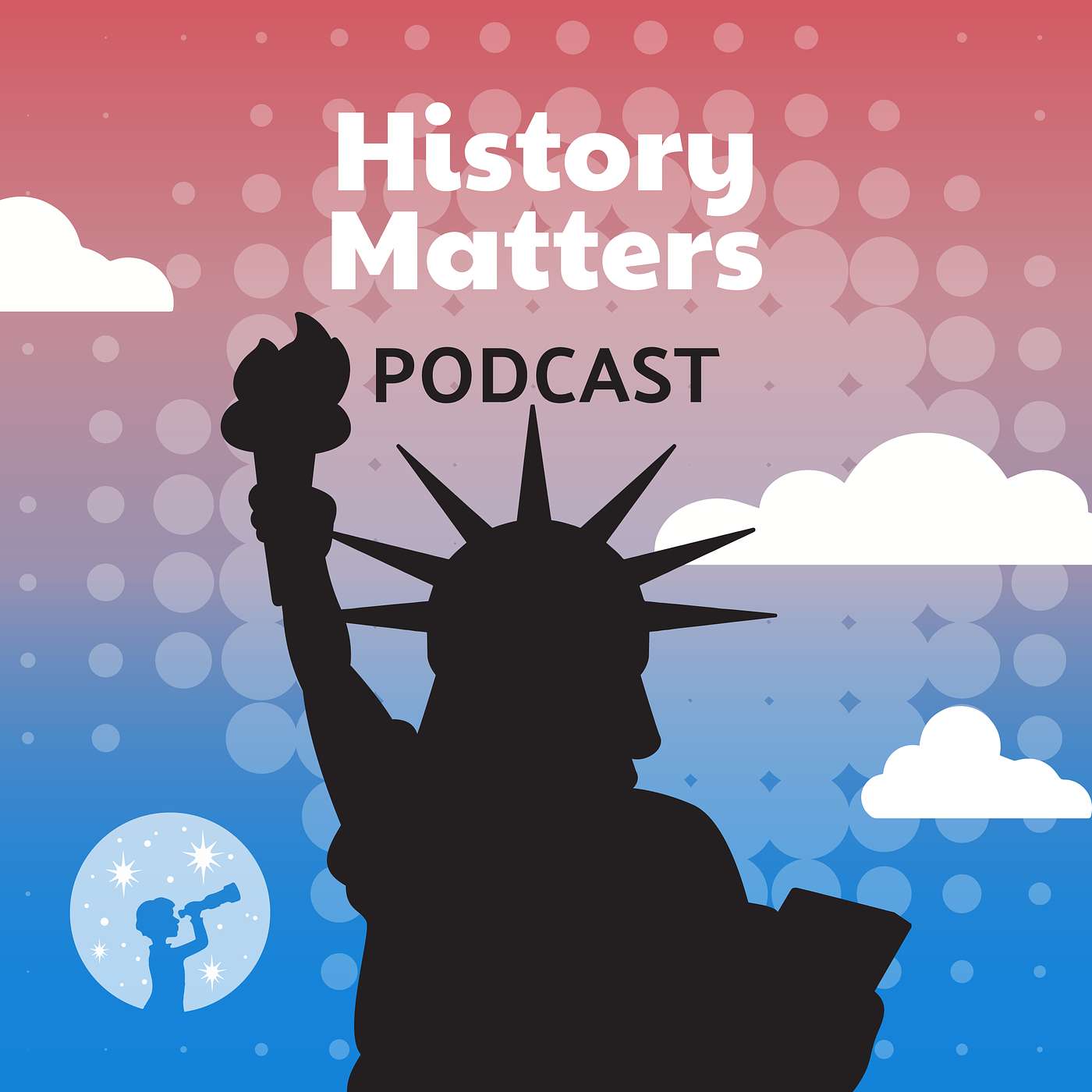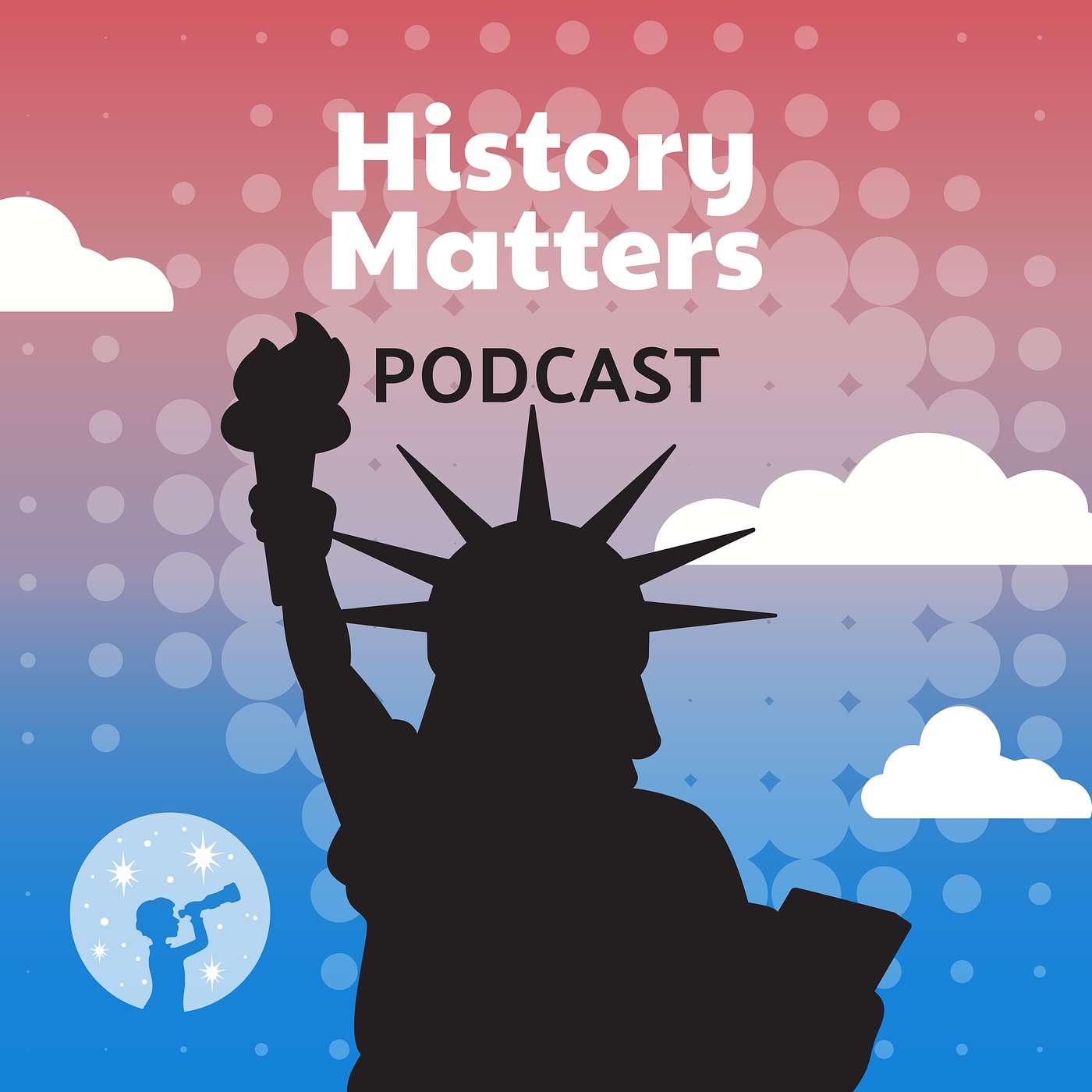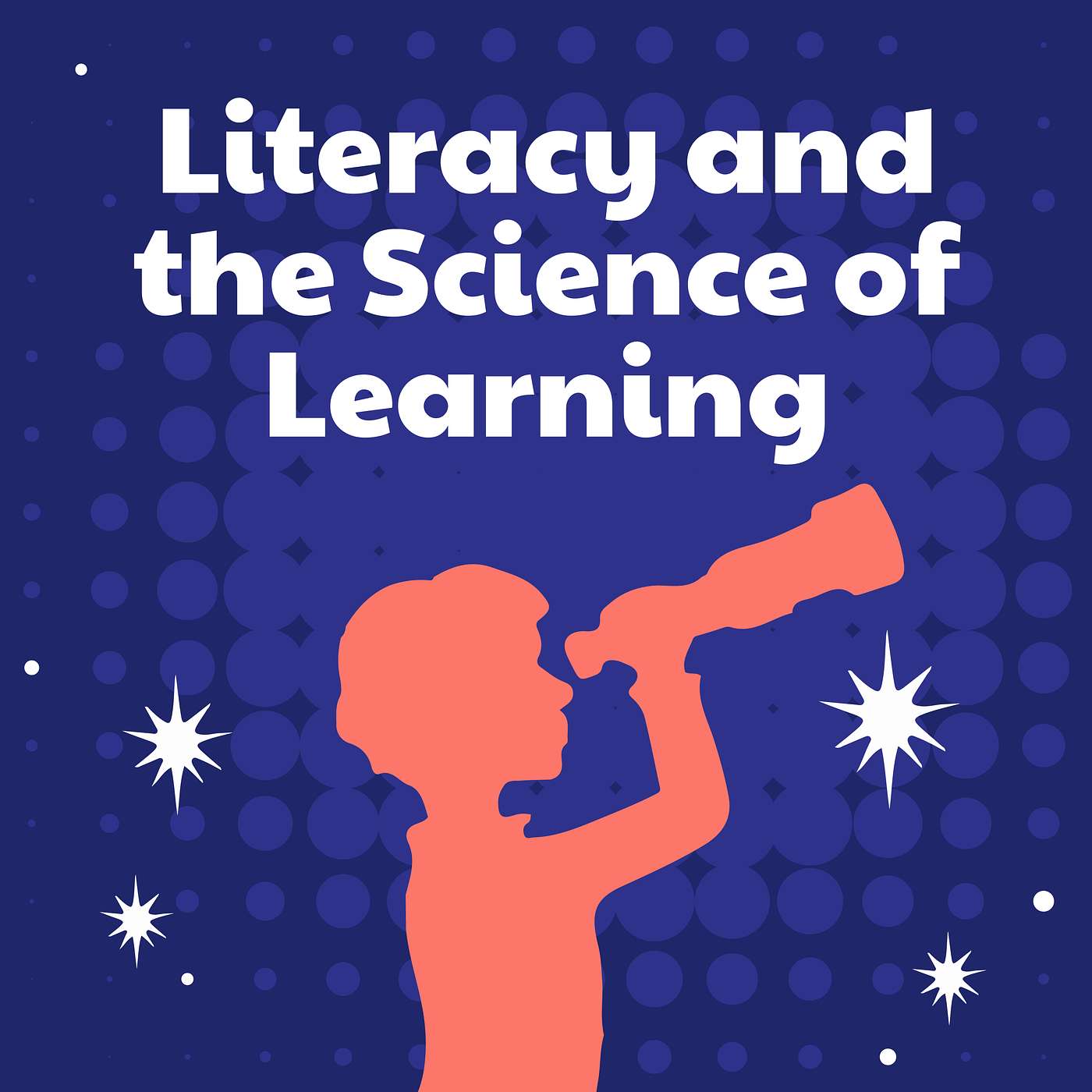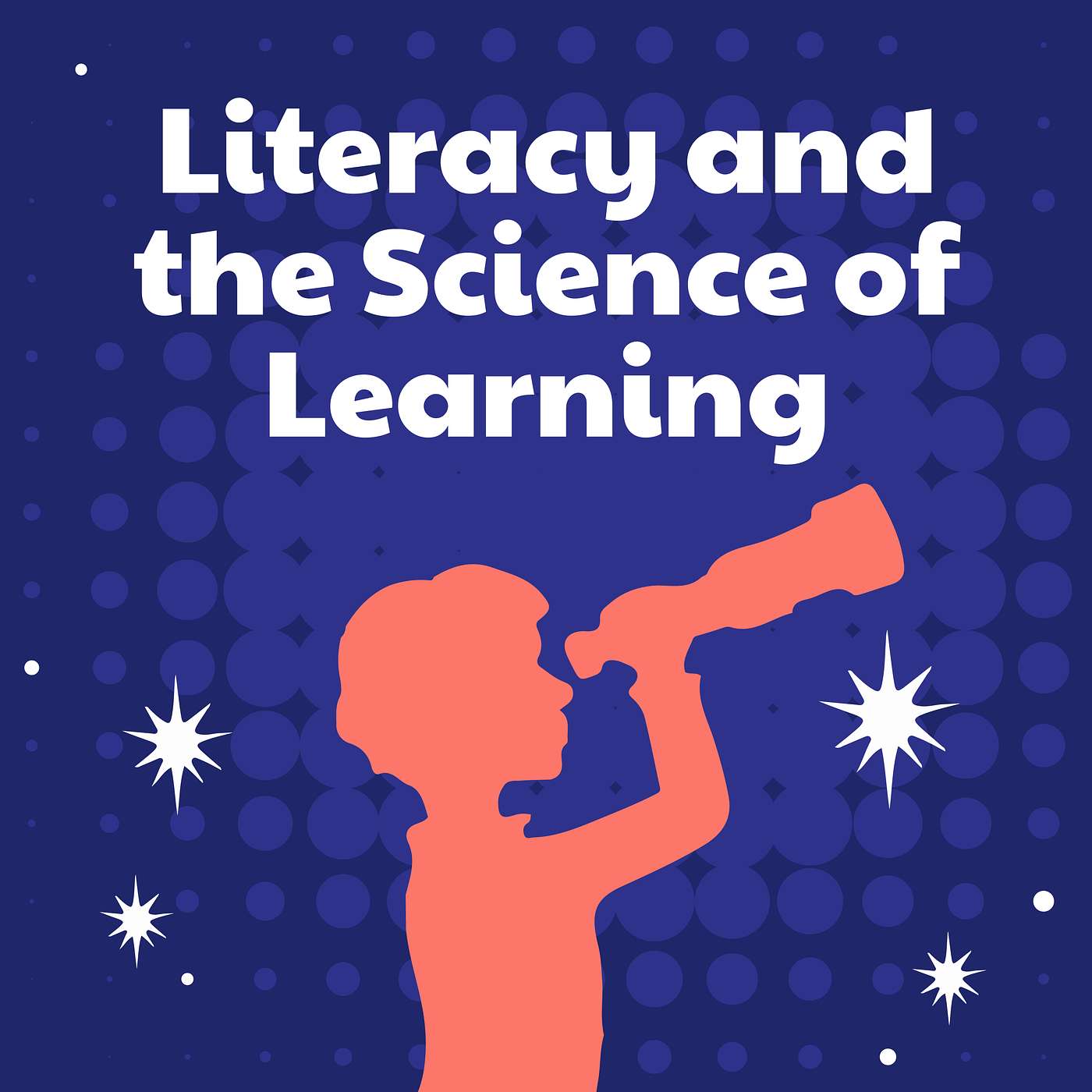Discover The Knowledge Matters Podcast
The Knowledge Matters Podcast

The Knowledge Matters Podcast
Author: Knowledge Matters Campaign
Subscribed: 415Played: 3,477Subscribe
Share
© 2025 StandardsWork
Description
Join the Knowledge Matters Campaign in this thought-provoking and engaging exploration of the vital role of knowledge-building in education. Each season delves into pressing issues, innovative ideas, and transformative solutions. It’s a must-listen for educators, administrators, parents, and anyone with an interest in the evolving landscape of learning.
32 Episodes
Reverse
Thirteen colonies rose up, rebelled against an Empire, and won their independence. These unlikely victors built a new nation on democratic principles that inspired similar movements around the world. How should we tell the story of our nation’s founding? Guests Sarah Botstein and David Schmidt, who co-directed The American Revolution with Ken Burns, explain how chronology and characters shape their longform PBS documentaries and accompanying curriculum materials, in a bonus episode of the His...
In Thermopolis, Wyoming, second-grade students love learning about the War of 1812, from the swashbuckling sea battles off the coast of Louisiana to the bombardment at Maryland’s Fort McHenry that inspired the “Star-Spangled Banner”—engaging lessons that build knowledge alongside literary and historical thinking skills. This type of learning is powered by a strong, coherent curriculum that ensures learning connects from unit to unit and year to year, says teacher Laura Stam, a 2024–25 Goyen L...
Many teachers build history lessons on primary sources like letters and legal documents. But without context and historical thinking skills, students can’t make much meaning from them, say guests Jon Bassett and Gary Shiffman, co-founders of the Four Question Method for history instruction. “Primary sources, for us, are ways to practice doing what historians do. 8th graders aren't historians, 12th graders aren't historians. So it’s the silly mistake that says, we need to do exactly what the e...
What do teachers need to successfully teach high-quality history lessons in elementary school? A strong curriculum is a great start, but teachers also need aligned professional learning and time to dig in and build the content knowledge that supports confident instruction, says guest Courtney Dumas. In this episode, she explains how her organization, Edu20/20, is supporting Louisiana educators as they implement the state’s content-rich Bayou Bridges elementary social studies curriculum. Effec...
In Medway, Massachusetts, “social studies is a subject to be valued,” fifth-grade teacher Jennifer Lindsey explains in this episode. “It’s the place to teach kids how to talk to each other and negotiate conversations and digest information and form an opinion—but also listen to others’ opinions and back that up with evidence,” she says. This content-rich, inquiry-based learning is powered by Investigating History, a new, free social studies curriculum developed by Massachusetts teachers, scho...
In the typical American high school, 9th-grade history students are expected to dive into the historical content, grapple with complex ideas, and engage in deep inquiry. But teenage students often lack the historical knowledge such tasks require. If you haven’t learned much about the Civil War, for example, you won’t be ready to discuss whether the Compromise of 1877 was a fair deal. That’s one of the challenges described by this episode’s guest, Ebony McKiver, a curriculum expert and former ...
The more history young students know, the more they want to know. That’s one of the joyful discoveries that elementary teachers are making in Ouachita Parish, Louisiana. In this episode, guests Angela Barfoot and Lauren Cascio describe the rewards of using Bayou Bridges, a content-rich, knowledge-building social studies curriculum, in combination with a high-quality ELA curriculum, Louisiana Guidebooks. Extensive teacher notes, rich texts, engaging visuals, and tie-ins to virtual field trips ...
Teaching history involves balance: too many facts and it’s boring, too few and students don’t have enough information to make sense of what they’ve learned. In this episode, host Barbara Davidson speaks with Sean Dimond, a former middle-school teacher and Louisiana state social studies director who is now senior social studies editor at the Core Knowledge Foundation. Dimond notes that in elementary school, history is often “a random collection of holidays,” with topics presented out of sequen...
Elementary schools spend almost no time teaching history. How did we get here, and how can we reprioritize this crucial foundation for literacy and knowledge? Host Barbara Davidson begins the eight-part “History Matters” podcast with a reflective and forward-looking conversation with guest Robert Pondiscio, an author and former fifth-grade teacher who founded the Knowledge Matters Campaign. Pondiscio recalls his youthful passion for history, sparked by the nation’s bicentennial celebrations n...
Season 3 Episode 6 | “Teaching students to write clearly was actually teaching them to think clearly.” In the Season 3 finale, host Natalie Wexler brings listeners inside Monroe City Schools, a high-poverty Louisiana district where educators have paired a content-rich curriculum with explicit writing instruction. This combination has not only helped students become fluent writers but also expanded their ability to understand complex content and think analytically. For writing...
Season 3 Episode 5 | Writing is hard—and teaching writing is even harder. But science tells us it’s well worth the effort, because writing flexes the mental muscles that nurture literacy and learning. Host Natalie Wexler connects cognitive science to specific writing practices that transfer information from working to long-term memory and require students to retrieve and elaborate on that information. She’s joined by psychologists John Sweller and Jeffrey Karpicke, whose research has ide...
Season 3 Episode 4 | “The book is in a death struggle with electronic and social media. And right now, it’s losing.” Host Doug Lemov makes a spirited case for reading whole books in the classroom—especially since today’s students read almost no books outside of school. He’s joined by guests Stephen Sawchuk of Education Week and cognitive psychologist Daniel Willingham and speaks with two Texas educators using whole books in their school. “Learning to be able to struggle—to read a challen...
Season 3 Episode 3 | When we read fluently, we recognize words without effort. We also maintain an engaged pace (automaticity) and perceive expression (prosody), all of which support attention and leave working memory free to make meaning from a text. This is a complex achievement, and many students have fractured attention spans. What can educators do to account for interruptions and focus on building fluency, which is key to developing comprehension? Host Doug Lemov looks at the scienc...
Season 3 Episode 2 | Our memories grow stronger when we work to retrieve them. That’s why flash cards and pop quizzes are effective: they prompt students to recall and access information from their memory bank. What other instructional tools and techniques help students remember what they’ve learned, and how can teachers put these to use? Host Dylan Wiliam takes a deep dive into four vitally important principles that are rooted in cognitive science and receive far less attention than the...
Season 3 Episode 1 | How can schools and teachers maximize student learning? To answer this question, we need to understand how the human mind works. What needs to be explicitly taught, how many new things can we remember at a time, and what is the role of background knowledge in easing students’ cognitive loads? Host Dylan Wiliam begins the six-part “Literacy and the Science of Learning” podcast with an accessible overview of cognitive and educational psychology, in conversation with ex...
How is the Science of Reading connected to the Science of Learning? Join hosts Dylan Wiliam, Doug Lemov, and Natalie Wexler as they delve into the links between the two, both in theory and practice, in Season 3 of the Knowledge Matters Podcast. Across six 30-minute episodes, we’ll explore how long-term memory shapes reading comprehension, why reading whole books is better than excerpts on a screen, and how teaching students to write clearly can help them think more clearly, in conversation wi...
This bonus episode is an audio recording of our most popular webinar ever, Writing: An Unsung Hero of Reading Comprehension. It features familiar voices to listeners of Season 1 of the Knowledge Matters Podcast, best-selling author and host Natalie Wexler, as well as StandardsWork’s Chief Program Officer Kristen McQuillan, Doug Lemov (Teach Like a Champion), and Julia Cooper (SchoolKit). Their conversation focuses on why writing should be connected to content learning. How does the act of wri...
Today’s episode is a special bonus—an audio recording of our recent webinar, Knowledge: Why It Matters. We found the conversation so valuable that we wanted to make it accessible in as many ways as possible. In this episode, StandardsWork’s Chief Program Officer Kristen McQuillan and Baltimore City Public Schools teacher Kyair Butts join Dr. Susan Neuman (New York University) and Dr. Margaret “Moddy” McKeown (University of Pittsburgh) to explore how content knowledge plays a critical role in ...
Season 2 Episode 6 | Explorers boldly venture into unfamiliar worlds, where confidence, curiosity, knowledge, and persistence are rewarded. When students approach texts like explorers, they bring these same qualities to the task—a mindset cognitive scientists call the “standard of coherence.” Such reading is purposeful, engaging, and expands the reader’s horizons. Reading anywhere, anytime is not just doable. It’s joyful. In this episode, hosts David and Meredith Liben discuss the key ingredi...
Season 2 Episode 5 | Have you ever read something and then realized you didn’t totally understand it? That’s the hallmark of a challenging text, and it’s something students encounter all the time. In this episode, David and Meredith Liben discuss three ways to connect students with sophisticated texts, even if they can’t yet read or comprehend them on their own: juicy sentences, explain your answer, and structured journaling. First, linguist and language scholar Lily Wong Fillmore shares...























